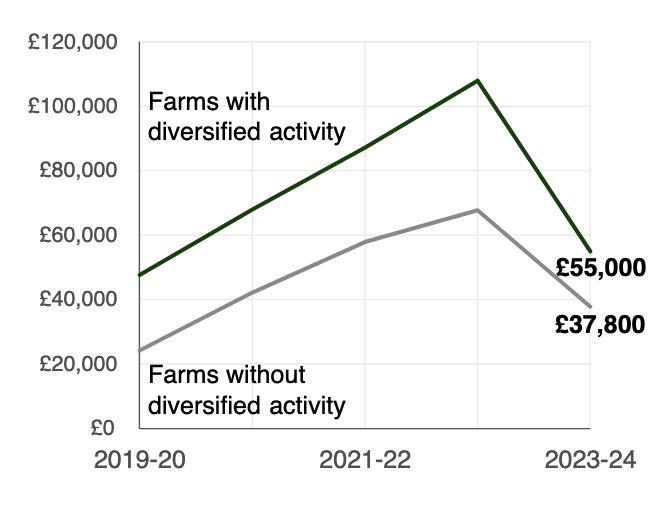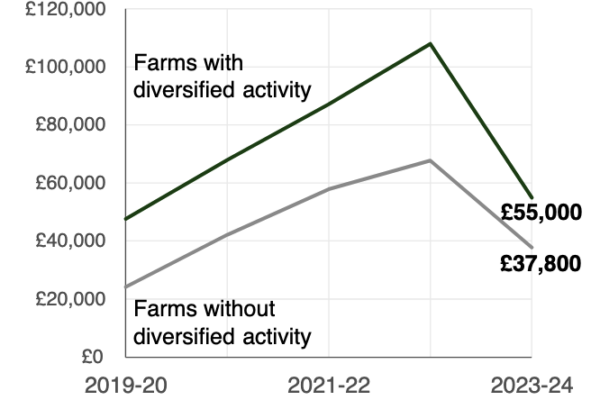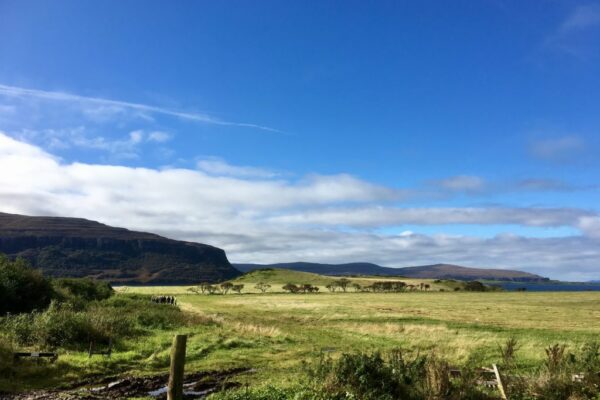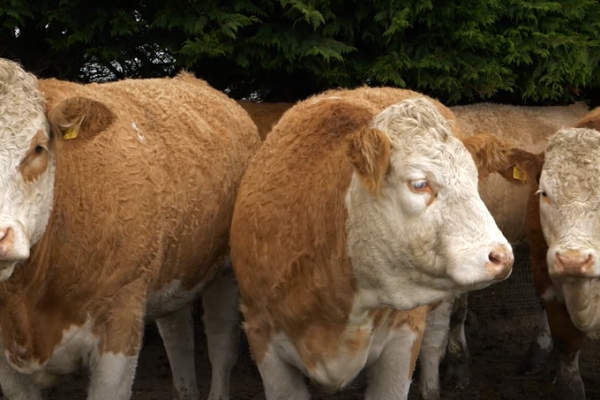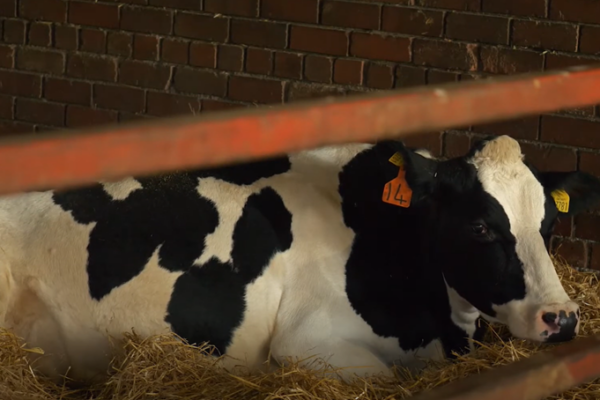Agribusiness News April 2025 – Sustainable Proteins
31 March 2025Background
To reduce reliance on imported protein feeds, livestock farmers have long been exploring the use of home-grown alternatives such as pulses, lupins, rapeseed and forage legumes. Currently, the UK ruminant feed industry relies heavily on imported proteins such as soyabean meal which raises concerns about sustainability, food security and the environmental impacts.
There has been more pressure on the livestock industry in recent years to reduce overall soya imports, and where soya is imported, to ensure it comes from a sustainable source. This is due to the concern with the associated deforestation and conversion of land in countries like Argentina and Brazil to produce soya. In 2021, the UK set up the Soya manifesto, with the target being set to source all soya from deforestation and conversion-free sources by 2025, aligning the UK with the EU’s “Regulation on Deforestation-Free supply chains” legislation. This legislation was due to come into force in 2025 but has been delayed by a year.
Home-Grown Proteins
Many UK farmers are now looking to homegrown crops, not only to reduce the environmental impact, but also to reduce the financial impacts of a volatile market. There is an opportunity to use alternatives in feed e.g. pulse crops, such as peas and beans.
New data presented at the “From Soya to Sustainability” conference held in Peterborough in January this year showed that 3.4Mt of CO2 equivalent could be saved through better use of home-grown pulses. This would cut the agricultural industry’s footprint by 7%. This reduction would be achievable by increasing pulse production by 20% of the current total area and by replacing 50% of the imported soyabean meal currently being used in livestock rations.
Pulses UK Market
According to the Processors and Growers Research Organisation (PGRO), the UK’s pulse market has been reasonably quiet since the turn of the year with export demand much lower since last harvest. For now, it is still too soon to predict the impact that emerging tariffs imposed by major trading nations will have on the UK pulse export/imports and domestic demand for home produced protein. At the moment, market values are underpinned by soya and rapeseed meal in a market which is still quite uncertain of the supply of local pulse crops.
UK spring drilling has begun where soil conditions permit, however, there is a lot of uncertainty by how much spring cropping will be sown in 2025. According to the PGRO, there is suggestion that break crop areas and spring crops could take a disproportionate hit to land being taken out of production in favour of government environmental payments. However, on a more positive note, there continues to be an increased interest in pulse crop opportunities for 2025 harvest.
The UK trading for feed beans has been steady but at relatively low volumes. PGRO suggests that prices have been largely unchanged since October 2024 sitting at around £217-219/tonne ex farm (depending on location). Trading of the 2024 green pea crop is largely done but there is still demand where stocks exist with good quality samples averaging £350/t ex farm.
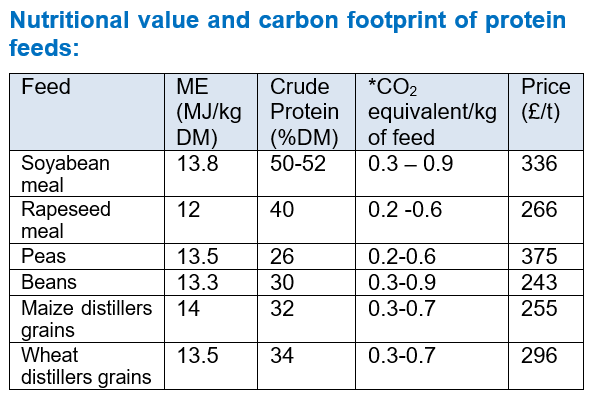
Points to note:
- *CO2 equivalent will vary depending on factors such as farm practices, variety of feed, how the feed is processed and source of feed. For example, soyabean meal imported from Brazil will be at the higher end of the range. Similarly, with distillers’ grains, those sourced locally will sit at the lower end compared to distillers from the US.
- Prices are based on 20t bulk blown loads delivered in 50-mile radius.
With soyabean meal remaining at such a competitive price, it has been difficult to see past this year, but as you can see on a nutritional basis peas, beans and distillers offer a good alternative in terms of energy; the protein content is not as high as soyabean meal or rapeseed meal but is a good mid-range alternative and in many instances, can replace much of the soya in the ration when balanced appropriately.
Mary Young, Mary.Young@sac.co.uk
Sign up to the FAS newsletter
Receive updates on news, events and publications from Scotland’s Farm Advisory Service






